Table of Contents
Valerian (Valeriana officinalis) is native to Europe and Northern Asia and has been used for millennia as a sleep aid.
Valerian promotes feelings of calm, decreases levels of anxiety and stress, and enhances sleep.
Valerian has traditionally been used for the treatment of headaches, anxiety, heart palpitations, high blood pressure, irritable bowel, menstrual cramps, epilepsy, and childhood behavior problems.
As a nootropic, Valerian is used primarily to lower stress and promote a good night’s sleep.
Valerian helps:
- Neurotransmitters. Valerian helps boost GABA in your brain, inhibits GABA reuptake, modulates serotonin and norepinephrine, and activates adenosine receptors.
- Neuroprotectant. Valerian acts like an anti-inflammatory by reducing NF-κB (nuclear factor kappa-B). And improves blood flow by acting as a smooth muscle dilator.[i]
- Anxiety, stress & sleep. Valerian helps eliminate stress by boosting GABA, serotonin, activating adenosine receptors, and reducing the stress hormone cortisol.
What is Valerian?
Valerian (Valeriana officinalis) is an herb native to Europe and northern Asia. And is now grown in England, Holland and the USA for nootropic supplement manufacturers.
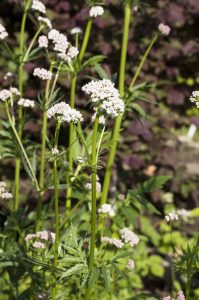
Valeriana officinalis belongs to the Valerianaceae family of plants which includes as many as 250 different types. Many are referred to as “Valerian”.
Valeriana officinalis is the species used in Europe and the USA. Valerian edulis is used in Mexico and Valerian wallichii is used in India. V. edulis contains substantially higher concentrations of valepotriates (up to 8%).
Here we are investigating the nootropic benefits of the most widely used Valerian supplement in the West; Valeriana officinalis.[ii] The medicinal part of the plant used in nootropic supplements is the root or rhizome.
The sedative effects of Valerian were first mentioned by Hippocrates several thousand years ago. And have since been confirmed in clinical trials by modern medicine.
Valerian likely got its name from the Latin word valere meaning to be healthy or strong.
The Greek physician Galen used Valerian for treating epilepsy and insomnia. It’s modern usage likely got its start in 1567 by Italian nobleman Fabio Colonna, who suffered from epilepsy. He found Galen’s reference and claimed it completely restored his health.[iii]
Valeriana officinalis contains over 150 compounds. But those identified of clinical importance are valepotriates, and their breakdown products baldrinals, valerenic acid, valerenal and valeranone.[iv]
Valerian also contains the amino acids arginine, GABA, tyrosine, and glutamine.
How does Valerian work in the brain?
Valerian boosts brain health and function in several ways. But two in particular stand out.
- Valerian improves sleep. Valerian is the most commonly used herbal nootropic to induce sleep in the USA and Europe. Research continues to establish accurately why this supplement works to help sleep.
But so far, science has determined that the compounds valerenic acid and bornyl acetate found in Valerian account for its sleep-inducing qualities.
These compounds inhibit the breakdown of GABA in the brain resulting in sedation. And the aqueous extracts (water-based) of Valerian roots contain significant amounts of GABA which could directly cause sedation.[v]
Researchers at the University of California in San Francisco did a systematic review of all the sleep using Valerian studies they could find. To find out if Valerian really did improve sleep like everyone said it does.
The team found 16 randomized, controlled trials totaling 1,093 patients that satisfied their criteria. Doses ranged from 225 to 1,215 mg of Valerian per day. Only 2 studies stated that the herb was standardized to a specific amount of valerenic acid.
But the evidence overall was clear. Valerian is a more attractive option to other sleep agents because of the lack of a ‘hangover effect’ the next day. And overall, patients got to sleep faster and had better quality sleep.[vi]
- Valerian reduces stress. A natural alternative to benzodiazepines, Valerian helps reduce anxiety. And helps you cope with stress.
GABA is the primary inhibitory neurotransmitter known to counterbalance the excitatory neurotransmitter glutamate. And research shows that often, those suffering from anxiety disorders are dealing with a dysfunctional GABA system.[vii]
Of all the studies demonstrating Valerian’s ability to help control anxiety and stress is best shown in the following study.
One of the most stressful and painful procedures in female medicine is hysterosalpingography. This procedure evaluates the uterine cavity and fallopian tubes and is typically performed on infertile women.
In this study, 64 infertile women undergoing hysterosalpingography (HSG) were given a single dose of 1,500 mg Valeric capsules 90 minutes before starting the procedure. Valerenic acid is one of the active compounds found in Valerian.
Anxiety severity was measured before and then again 90 minutes after the procedure. The researchers concluded that Valerenic acid (Valerian) significantly reduces anxiety in women undergoing HSG.[viii]
How things go bad
Chronic stress, anxiety, poor blood flow and free radicals (oxidation) can damage your brain. And one of the ways this manifests is memory loss.
It comes as no surprise that people with memory loss experience higher rates of anxiety and depression. As verified in one Australian research study.[ix]
↓ Chronic stress reduces memory capacity
↓ Toxins kill brain cells from the inside
↓ Free radicals destroy neurons and synapses
↓ Neurotransmitter levels decline
↓ Brain-derived neurotrophic factor (BDNF) declines
Under conditions of chronic anxiety your brain loses the capacity to transmit signals between neurons efficiently. Memory, cognition, and decision-making all suffer as a result.
Valerian benefits
Valerian extract helps relieve anxiety. The valerenic acid and valerenol in Valerian binds to GABAA receptors which provides its anxiolytic effect. Like the prescription drugs Xanax and Valium but without the side effects associated with these pharmaceuticals.[x]
Studies show that valerenic acid also modulates serotonin and norepinephrine in the hippocampus and amygdala regions of your brain. Also providing an anti-anxiety effect.[xi]
Valerian helps reduce the time it takes you to fall asleep. And provides a better night’s sleep.
One Swedish study showed Valerian provided ‘perfect’ sleep for 49% of the people in the study. And 89% reported ‘improved’ sleep while using Valerian.[xii]
Valerian seems to cause sedation by increasing GABA levels in your brain. Valerian provides GABA as one of its natural compounds, prevents reuptake of GABA in neurons, and inhibits the enzyme that naturally degrades GABA in your brain.[xiii]
Valerian helps ease menstrual cramps in women which naturally provides an anti-anxiety effect.[xiv]
Valerian helps reduce hyperactivity in those dealing with ADHD.[xv]
Valerian reduces symptom severity in those with restless leg syndrome. And improves sleep quality.[xvi]
Valerian extract has been used for years in Iran to treat epilepsy. One study in rats showed that Valerian (aqueous) extract provides this anticonvulsant effect by acting on adenosine receptors.
Note however that petroleum ether-based extract of Valerian did NOT provide this benefit in epilepsy.[xvii]
And Valerian helps reduce the symptoms of OCD.[xviii]
How does Valerian feel?
The effects of supplementing with Valerian (Valeriana officinalis) can help tame anxiety and help you sleep.
Valerian for sleep doesn’t act like prescription sleeping aids which make you feel you can’t stay awake. Instead, Valerian before bed helps your body and brain relax and allows you to drift off to sleep naturally.
Some report experiencing vivid dreams when using Valerian extract before bed.
Neurohackers report that Valerian extract is better than Valium® or Xanax® for combating stress without the side effects.
If you are dealing with ADHD, you may find that adding Valerian to your stack will help calm you. And turn off your mind enough so you can get some rest.
Neurohackers report that Valerian helps tame the symptoms of Restless Leg Syndrome. A few say it even helps calm the symptoms of Parkinson’s.
Some say using Valerian helps eliminate migraines.
Low dose Valerian may help alleviate social anxiety for some people.
Valerian Clinical Research
Valerian for sleep
Valerian has been used to treat insomnia since ancient times. In an open label case series of 11,168 patients, over 70% reported that Valerian was effective in helping them fall asleep, reduced sleep disturbances and decreased restlessness and tension.[xix]
If you live in a noisy environment and it’s affecting your sleep, you’ll like this one. A study conducted in Germany with a stack containing Valerian and hops reduced sleep disturbances caused by noise in a high-traffic area. This combo increased slow-wave and REM sleep.[xx]
Valerian helps ADHD
Hyperactivity, impulsivity, and inattention are symptoms of ADHD. Symptoms that can often be attributed to low levels of GABA in the brain.
A 3-week, double-blind, placebo-controlled pilot study was conducted to determine the efficacy of Valeriana officinalis tincture (MT) on ADHD. 30 children between the ages of 5 and 11 years, pre-diagnosed with ADHD, were recruited.
Valerian tincture or placebo was given to the kids 3-times per day for 3 weeks.
The study found a statistically significant improvement in the kids’ behavior with particular reference to sustained attention, anxiety and impulsivity and/or hyperactivity.[xxi]
Valerian for OCD
31 outpatients diagnosed with Obsessive-Compulsive Disorder (OCD) were recruited to participate in a double-blind, randomized trial.
Patients were randomly assigned a capsule of Valerian extract (765 mg) once per day or a placebo for 8 weeks.
The study showed a significant difference between the Valerian and placebo group by the end of the treatment.
The researchers concluded that Valerian extract has “anti-obsessive and compulsive effects” in patients with OCD.[xxii]
Valerian for stress reduction
During World War 1, Valerian was used to prevent and treat shell shock in front-line troops. And was used during World War 11 to help calm the residents of London during air bombing raids.[xxiii]
More recently, a double-blind, placebo-controlled trial with 24 healthy volunteers received 3 separate doses (600 mg, 1200 mg, 1800 mg) of a standardized product containing Lemon Balm and Valerian officinalis extracts, plus a placebo, on separate days separated by a 7 day wash out period.
The results showed the 600 mg dose of this stack reduced anxiety. But the highest dose did not work as well as the lower dose stack.
The research team concluded that the combination of Lemon Balm and Valerian extract possessed anxiolytic properties.[xxiv]
Valerian Recommended Dosage
Recommended Valerian nootropic dosage for:
- Stress reduction – 200 – 600 mg Valerian extract (aqueous, standardized to contain 0.8% valerenic or valeric acid)
- Valerian tea – 1.5 – 3 grams Valerian root steeped in boiling water
- Insomnia – 300 – 900 mg of Valerian extract (aqueous, standardized to contain 0.8% valerenic or valeric acid) 60 – 90 minutes before bed
- Valerian tea – 1.5 – 3 grams Valerian root steeped in 150 mg boiling water taken 60 –90 minutes before bed
- Lemon balm – 120 mg Valerian extract with 80 mg lemon balm extract 60 – 90 minutes before bed
Studies show it may take a week or two of continuous daily usage before you’ll experience the full effects of using Valerian.
Higher dosages of Valerian extract should be taken in smaller amounts 2 – 3 times per day. For example, 600 mg Valerian daily would be 3 doses of 200 mg each.
Valerian Side Effects
Valerian is well-tolerated and safe for most people. But side effects can occur and include headaches, dry mouth, excitability, uneasiness, heart palpitations, stomach upset and even insomnia in some people.
Although it’s rare, some report feelings of sluggishness the next morning.
A few have reported vivid dreams when using Valerian. If you are prone to nightmares, Valerian may cause you to dream more and have more nightmares.
Valerian root smells particularly nasty and is offensive to most people. If you can’t stand the smell, make sure you get this supplement in capsule form.
Valerian can interact with and should not used while on prescription antidepressants and benzodiazepines.
Type of Valerian to buy
The dried root or rhizome of Valerian officinalis is primarily used for its nootropic benefits.
Valerian root is available in capsules, tablets, liquid extracts and as a tea.
Valerian officinalis extract is available in capsules, tablets and powder form.
The pharmacopeia name for Valerian root is Valerianae radix.
Research shows that there can be considerable differences in Valerian content including essential oil, valerenic acid and derivatives, and valepotriates depending on where the Valerian is grown and when it’s harvested.[xxv]
Adulteration of Valerian supplements is a problem world-wide with unscrupulous manufacturers substituting other species of plants. Including from the Valerian species but not officinalis.
So make sure you choose a trustworthy manufacturer who clearly tests their product. And tests every single batch that leaves their plant.
I recommend: American Standard – Valerian because it is pure and 3rd party tested with great reviews.
Nootropics Expert Recommendation
I recommend using Valerian as a nootropic supplement.
Your body does not make Valerian on its own. So you must take it as a supplement.
Valerian is especially helpful for those suffering from anxiety, chronic stress and insomnia.
Valerian is reported to work well for those dealing with Obsessive Compulsive Disorder (OCD). Taming racing thoughts, and helpful in dealing with stressful situations.
Valerian is also helpful for those suffering from the hyperactivity associated with ADHD.
You can safely take up to 900 mg of Valerian daily if needed. One dose first thing in the morning. One dose early afternoon. And the last dose in the evening.
Valerian as a sleep aid seems to be particularly effective when stacked with Lemon Balm. The two work in synergy to help promote sleep. But when combined, use lower doses of each.
I recommend: American Standard – Valerian because it is pure and 3rd party tested with great reviews.

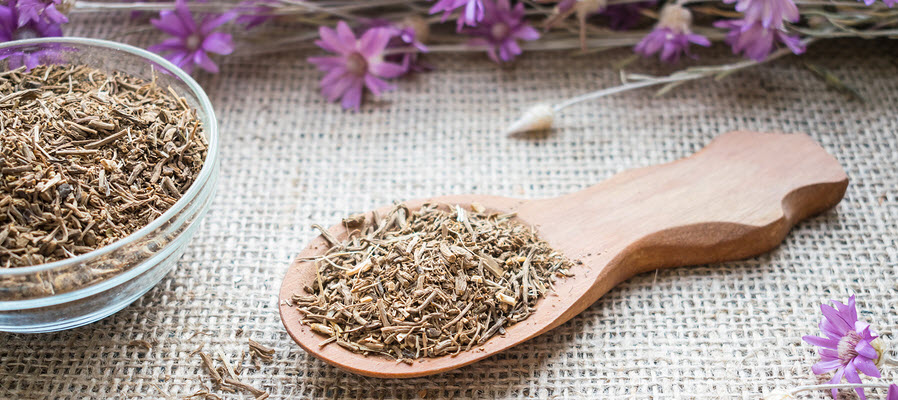
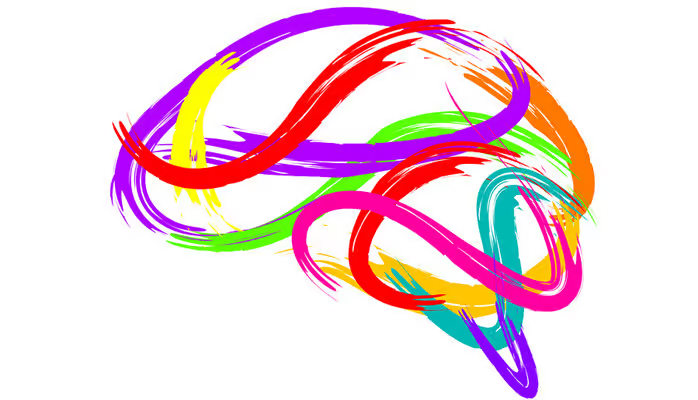

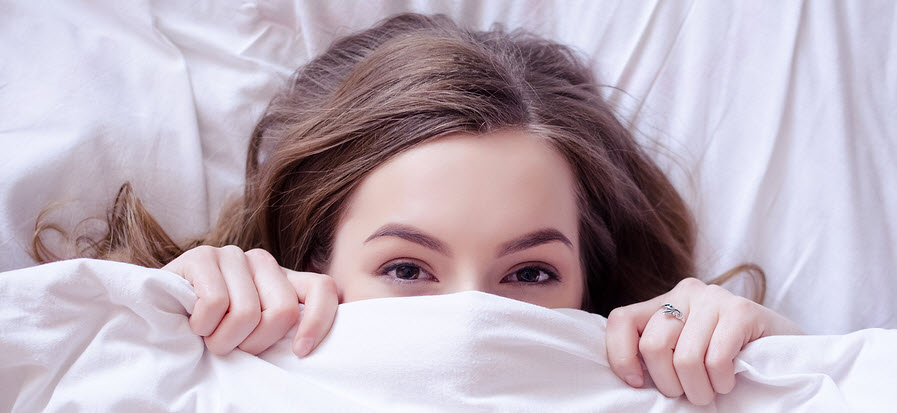
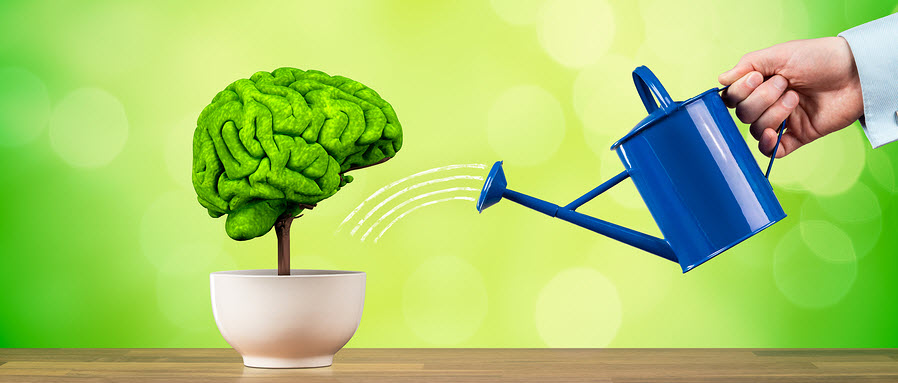






Join The Discussion - 71 comments
Jessica
August 24, 2021
What a great Valerian root product?
David Tomen
August 27, 2021
Jessica, this one is pure and tested: https://amzn.to/3zpIIC2. It has great reviews and the capsules contain nothing other than Valerian. No toxic “other ingredients”.
Claudio
July 23, 2021
Hi David , when I take valerian I feel my motivation increases and things become easier to do. What could be the cause of this effect?
Sorry for my bad English.
David Tomen
July 25, 2021
Claudio, Valerian affects glutamate and GABA in your brain. AMPA receptors are glutamate receptors. And when you activate those receptors it activates the dopamine/reward/motivation pathway which increases motivation.
Matthew Benton
February 5, 2021
Hi David,
I was wondering if Valerian pairs well with other nootropics or supplements, mainly for the purpose of stress and anxiety. I saw where you posted about taking it with Lemon Balm. Are there others you would recommend? Along with stress and anxiety, I was thinking about sharpening up the ol’ brain (I find that anxiety interferes with my ability to think clearly at times) and so any help in that area would be beneficial as well. Thank you for all that you do and the time and effort you put into your work and helping others.
Sincerely,
Matthew
David Tomen
February 7, 2021
Matthew, Valerian can be such a potent supplement that if it addresses the cause of you stress and anxiety you may not need anything else.
Check this article for other ideas: https://nootropicsexpert.com/top-7-nootropic-adaptogens-to-conquer-anxiety-and-stress/
Max
February 9, 2020
Hi David! I take one capsule 500 mg of valerian every day before bed. Is it safe to take it long term? Should I take a break from it for a month and then continue?
David Tomen
February 10, 2020
Max, as far as I can tell Valerian can be used daily long-term although the longest clinical trial that I’m aware of was 28 days.
This is the “professional” data sheet on Valerian: https://ods.od.nih.gov/factsheets/Valerian-HealthProfessional/
I’d say if you are in generally good health with no liver problems you’ll be fine using it long-term. Just listen to your body. If you start to feel side effects then taper off and stop using it.
Wim
January 25, 2020
Hi David,
My search is still going on.
I think that tyramine (dark chocolade, etc ) & norepinephrine (and other amino acids to build this) might be the cause of my AF I get sometimes.
“MAO changes tyramine and other amine-containing compounds (norepinephrine) into a harmless substance that is then excreted from the body”
Now I arrived at Inducers/ to up-regulate MAO-A:
and found here the only one Valproic acid https://en.wikipedia.org/wiki/Monoamine_oxidase_A
“Valproic acid was first synthesized in 1882 by Beverly S. Burton as an analogue of valeric acid, found naturally in valerian”
https://en.wikipedia.org/wiki/Valproate
Do you know an other Inducers/ to up-regulate MAO-A?
thanks again
David Tomen
January 26, 2020
Wim, Methylene Blue and Berberine for MAO-A. And curcumin and Piperine for both A & B.
Wim
January 26, 2020
Thanks David for the reply and on the others,
I have checked your pages about these you mentioned but they all do inhibiting MAO.
So MAOi
I did mean the opposite of inhibiting inducing, to up-regulate.
On the wiki page it was only valproic acid on that side found in valerian.
Do you know others outside valerian that induces MAO ?
Thanks again
Wim
David Tomen
January 27, 2020
Wim, my apologies. I thought you were looking for a natural MAOI.
Trying find something to upregulate MAO-A is very difficult. But this is what I found:
Ginkgo Biloba: https://www.ncbi.nlm.nih.gov/pubmed/11229360
Riboflavin: studies say to reduce it (https://www.ncbi.nlm.nih.gov/pubmed/6765737) but this can cause real problems because Vitamin B2 (Riboflavin) is needed to convert Tryptophan to Vitamin B3 (niacin), and is part of ATP production in mitochondria.
Calcium: https://bmcneurosci.biomedcentral.com/articles/10.1186/1471-2202-8-73
Wim
February 1, 2020
thanks David,
for Riboflavin, at least something in the vit-B complex decreases also norepinephrine as the others increases it. (I start to see they need to be bought separately for cycling them and not in a complex .)
I found also on yours and other pages that:
– Ashwagandha “Appears to attenuate the inhibition of MAO enzymes”
– Taurine, in both in vivo and in vitro, inhibited the release of adrenaline from adrenal medullary granules.
– students taking 20 exams had a similar decrease in noradrenaline (-31%) at 1.5g DHA daily
– Magnesium inhibits norepinephrine release by blocking N-type calcium channels at peripheral sympathetic nerve endings. These findings suggest that Mg2+ blocks mainly N-type Ca2+ channels at nerve endings, and thus inhibits norepinephrine release, https://www.ncbi.nlm.nih.gov/pubmed/15477382
(the Calcium part of your link and here is complicated to understand)
– Melatonin decreasing norepinephrine and epinephrine
– COMT as I just wrote on your SAM-e page
here an interesting DIAGRAM to visualize all incl. MAO & the others : https://nutritiongenome.com/what-is-mao-a/
thanks again David
Vishal Byakod
January 16, 2023
Hello,
I am also in the search of something that can can increase MAO A/B enzymes as I have high amounts of Catecholamines. Have you found something that increases the MAO? Most herbs seem to be Inhibitors of the enzyme.
Thanks,
Vishal
David Tomen
January 18, 2023
Vishal, you do not want to increase monoamine oxidase if you think your catecholamines are too high. That can make matters worse. The simplest way to decrease dopamine and norepinephrine is by increasing serotonin by using L-Tryptophan.
Steve
October 3, 2019
Hi David,
What are your thought on taking Valerian and Taurine? They both work on GABBA. Not sure if this can cause too much GABBA in the brain.
Thanks
David Tomen
October 5, 2019
Steve, it may or may not. Depends on your unique system. I suggest getting familiar with the symptoms of excess GABA. The try these two and see how you feel. If you’re feeling any of the side effects of too much GABA you’ll have your answer.
Kenneth
May 30, 2019
Hi David,
What are your thoughts on using Valerian with L-theanine?
David Tomen
May 30, 2019
Kenneth, they should compliment each other but don’t know how synergistic they would be stacked. Both work on the GABA system and not sure how that would work. Let me know if you try it and if/how it worked for you.
Kenneth
June 12, 2019
Hi David,
I tried and did not notice much difference, maybe I need to repeat the experiment a few times. I’ve also tried Passion Flower with positive effects, are you considering doing a review of this nootropic?
David Tomen
June 12, 2019
Kenneth, Passion Flower is on my list to review. But it’ll depend on what turns up in my research before I decide if it’s consider powerful enough to be considered a nootropic supplement.
Kenneth
June 13, 2019
Thanks David,
On a different note. Is there anything that would recommend for tinnitus?
David Tomen
June 13, 2019
Kenneth, I’ve not been able to nail-down a definite treatment for tinnitus. Even after all the research I’ve done. I’ve found my tinnitus isn’t as bad as it once was. But I couldn’t attribute that to one particular supplement I’m taking.
Jerry Friedman
December 2, 2018
Thank you for your work and videos on YouTube. I have a brief question.
Years ago, I survived 5 years of eldercare thanks to EMDR. The effect of 20 minutes of EMDR, after a disturbing event, was to change my mood from anxiety, anger, and depression to pure joy. An hour after EMDR, bad things would seem to be funny and some days I became slap-happy.
After being educated by your videos about the clinical effects of Nootropics, I began to wonder, what does EMDR do to the brain to change the mood so drastically ?
David Tomen
December 2, 2018
Jerry, apparently Eye Movement Desensitization and Reprocessing (EMDR) works to help your brain do some “rewiring” which in clinical terms is usually referred to as long-term potentiation (LTP). LTP is needed to form long-term memories.
It is thought that EMDR may stimulate this long-term potentiation which could help a person to complete the processing of the traumatic event. Thus beginning the potential for accepting and healing of this event.
Loren Amelang
September 3, 2020
David,
When you say “valerenic acid”, are you intending to include valeric acid as an equivalent?
I recently discovered that the valeric acid my body cleaves from estradiol valerate tablets (slowly absorbed buccally) has a dramatic effect on my spatial perception, seemingly prioritizing my dorsal stream vision. I can get some of the effect by holding valerian extract in my mouth for minutes. If I just swallow it, I think I still get that effect, but I get so much other “buzz” along with it, it is hard to judge.
So I’m curious if valeric acid is known to have different effects from valerenic. Does it make sense valeric would be more readily absorbed through my cheeks? Is there a (reasonably priced) source for valeric acid without the valerenic and other natural components? Do you know of any relevant research? I’m not finding anyone making the distinction.
David Tomen
September 4, 2020
Loren, valerenic and valeric acid are the same thing. Valerate is not. Valerate is a conjugate base of a valeric acid (https://pubchem.ncbi.nlm.nih.gov/compound/Valerate).
But anything is going to be more bioavailable if it’s absorbed through your cheeks or under your tongue (sublingual). Because it completely bipasses your digestive system and goes straight into your bloodstream.
Loren Amelang
September 5, 2020
“valerenic and valeric acid are the same thing.”
This is way beyond any chemistry I studied, but in the HRT world, people say valeric acid is the byproduct of cleaving estradiol valerate to E2. They show it as C5H10O2 like
https://pubchem.ncbi.nlm.nih.gov/compound/valeric acid
Valerenic acid as I understand it is C15H22O2, over twice the molecular weight, like this page:
https://pubchem.ncbi.nlm.nih.gov/compound/6440940
I’ve seen some liquid extracts are standardized to one, some to the other. I suspect the lighter molecule is more readily absorbed through my cheeks. But I’m not finding anyone distinguishing the experience of ingesting them separately. Natural valerian extract is readily available; looks like valeric acid is a restricted chemical I could never access. Except as part of EV… Maybe nobody has experimented with them separately?
David Tomen
September 6, 2020
Loren, maybe a chemist knowledgeable about this will chime in here and help us out. But it seems to me that nearly anything can penetrate the lining of blood vessels and why a lot of nootropics are more effective is taken sublingually. But we avoid this method of dosing because it either tastes really bad or it burns delicate tissue.